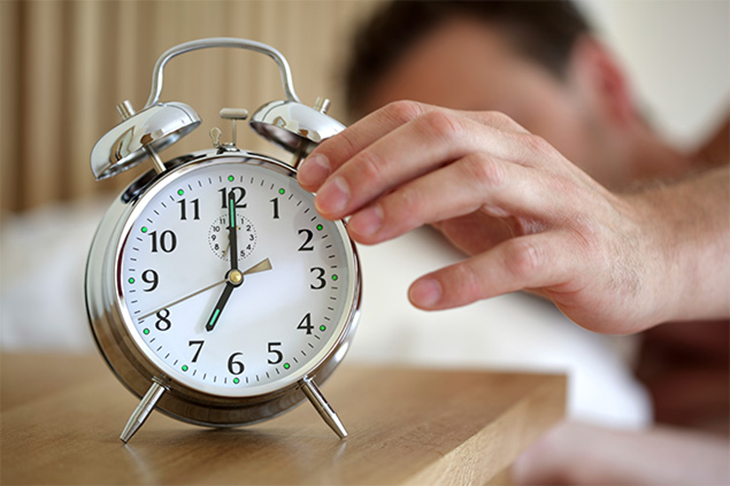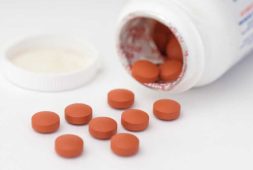
Sleep is oftentimes the first to go out the window when people are stressed, busy, or depressed. However, this is just as important as a healthy diet and lifestyle. In fact, a new set of recommendations was made by the American Heart Association (AHA). They added sleep duration to the list of factors that help improve cardiovascular health.
There’s more to heart health than just getting enough exercise and quitting cigarettes. In fact, they said that seven to nine hours of sleep each night is highly recommended for everyone because this helps them attain the best cardiovascular health.
If you want a healthy heart and ensure that it stays that way, then make you get a good night’s sleep all the time. The American Heart Association agrees and has added sleep to its cardiovascular health checklist. The list comes with eight factors that you need to practice when it comes to staying healthy: diet, exercise, lessen tobacco use, maintain weight, lower cholesterol, lower blood sugar levels, watch your blood pressure, and the newest one is sleep. AHA had published its new checklist, called “Life’s Essential 8,” in the journal Circulation on June 29. The old checklist was created in 2010 and this was called “Life’s Simple 7.”
“Not only is sleep health related to the other things that play a role in heart health, it seems to also be directly related to cardiovascular health itself,” said Michael Grandner, PhD. He is the director of the sleep and health research program at the University of Arizona College of Medicine in Tucson. He was also part of the team that drafted the new AHA checklist.
“Sleep is changeable, and studies show that you can improve aspects of heart health just by improving sleep,” Dr. Grandner added.
Most adults require at least seven hours of rest every night, according to the U.S. Centers for Disease Control and Prevention (CDC). Sadly, more than one-third of the adults under the age of 65 years get less than this as seen in the CDC data.
People who sleep less than six hours each night are more at risk for health problems such as obesity, high blood pressure, type 2 diabetes, and deteriorating mental and cognitive health, Grandner also said. As for those who get more than nine hours of sleep every night are also less likely to be healthy. With too much sleep, they are also most likely to die prematurely, Grandner added.
Life’s Essential 8, According to AHA
The AHA’s new Life’s Essential 8 checklist has a score on a 100-point scale. The higher the average scores across the eight items listed means that they have better cardiovascular health. If the overall average score is less than 50 points, this means that they are at risk for poor heart health. Scores from 50 to 79, on the other hand, are indicative of moderate heart health. The ones that score more than 80 have high cardiovascular health. If you’re wondering what yours is, the AHA has an online tool available so that you’re able to check your score.
Reality shows that a mere one in five adults have scored high in the cardiovascular health scale, according to a study that was published in the same issue of Circulation. So, more than three out of five people have moderate cardiovascular health, as seen in this study made.
Aside from sleep on the new checklist, the experts AHA have added other major changes in Life’s Essential 8 for the first time. These weren’t found on the previous copy. Included here are the following:
- Diet: This is needed for a heart-healthy diet. The diet details have been studied and the parameters roughly follows a Mediterranean style eating pattern. There are 16 questions for this and all are utilized to measure how often each you include olive oil, vegetables, berries, meat, fish, dairy, and grains in your meals.
- Exposure to Nicotine: Also included here aside from the traditional cigarettes that were found in the market for years are vapes and e-cigarettes that have been all the rage lately.
- Cholesterol Count: Rather than looking at the overall cholesterol count, the checklist now looks at just the unhealthy fats found in the blood. Included here are triglycerides and low density lipoprotein (LDL) cholesterol.
- Blood Sugar Levels: This is also another one of its newest options to consider. You need to know the results of blood tests that show the hemoglobin A1C levels. This shows you your average blood sugar levels. This covers the last 3 months of your lifestyle.
Of course, some factors stayed the same for the checklist. This was how they measured exercise, blood pressure, and body weight. A high cardiovascular health score can be attained with 150 minutes of moderate intensity exercise or at least 75 minutes of rigorous exercise per week. As for blood pressure, this must score below 120/80 mmHg. Body mass index (BMI), on the other hand, should be 18.5 to 24.9.
How to Get a Good Night’s Sleep
In order to attain high scores for sleep , it is required that you get seven to nine hours of sleep every night. Of course, this is also quite flexible and allows you some room for movement. You may fall anywhere in this range to achieve a healthy heart, says Marie-Pierre St-Onge, PhD. She is the lead author of AHA guidelines on sleep duration and quality issued in 2016. She is also the director of the Sleep Center of Excellence at Columbia University Irving Medical Center in New York City.
“Adults should strive to get at least seven hours of sleep per night, but there is no reason to stress over getting somewhat less or somewhat more than that,” says Dr. St-Onge.
You may deviate from the range, but falling to far does increase your risk of several markers of heart disease. You should also be mindful of other factors such as obesity, type 2 diabetes, and high blood pressure. This was stated in the 2016 AHA guidelines, which was what helped the draft of the new checklist.
The important thing is that you feel alert, well rested, and refreshed when you wake. See to it that you get enough sleep, especially if your numbers come close to the recommended number of hours stated in the guideline, St-Onge advised.
“Although one may feel perfectly fine on less than seven hours of sleep, it does not mean that other aspects of their health, that cannot be ‘felt,’ are not suffering — for example having higher blood glucose or blood pressure,” St-Onge said. “So, although there is some wiggle room around the seven to nine hours of sleep that’s recommended, I wouldn’t recommend straying too far from it.”
If, unfortunately, you’re really not getting the sleep you need and you always wake up fatigued and exhausted, you need to improve the situation. There’s always something you can do about this, said Kristen Knutson, PhD. She is a sleep researcher and associate professor at the Northwestern University Feinberg School of Medicine in Chicago.
“There are several strategies to improve sleep if someone is not sleeping well, such as avoiding caffeine and alcohol, maintaining a regular bedtime, keeping your bedroom sleep friendly — dark, quiet, cool, and comfortable — and allowing yourself a calming transition between active wakefulness and going to sleep,” Dr. Knutson said.
If the advice given doesn’t help, then Knutson said that you need to talk to your healthcare specialist to get some more insight.
“Inclusion of sleep health in the new AHA measure is a strong message and endorsement for the importance of sleep for cardiovascular and overall health and well-being,” Knutson advised. “I hope sleep becomes a standard topic of conversations between patients and physicians in the clinic,” she also said.



